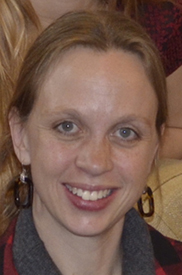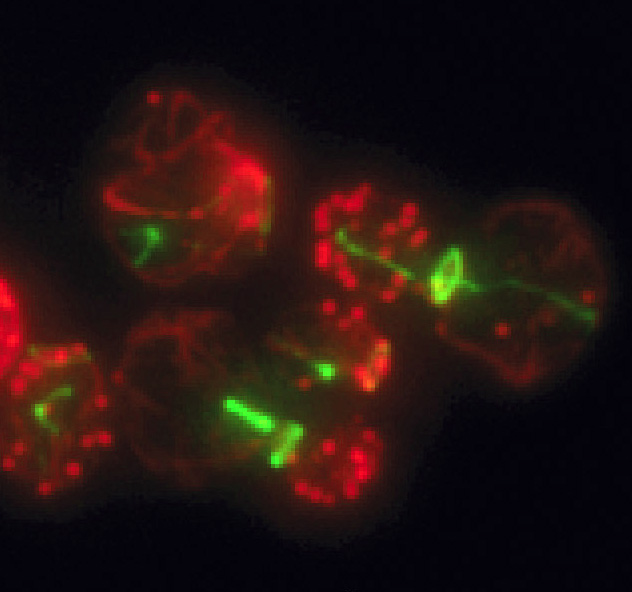New courses offered in the Division of Science in Fall, 2011:
BISC 9B Biology of Cancer (Dore)
Introduces the fundamental aspects of cancer development, progression and treatment with an emphasis on the cellular and molecular changes thought to lead to cancer. Both genetic and lifestyle factors and their impact on the predisposition to develop and recover from cancer will be discussed. Usually offered every year.
CBIO 101A Chemical Biology (Pontrello)
Chemical biology is not just biochemistry, and the subject involves much more than a simple combination of chemistry and biology topics. This course will explore how recent cutting edge scientific work in chemistry has led to a deeper fundamental understanding of and ability to manipulate biological processes. Emphasis will be placed on the design and chemical synthesis of micro and macromolecular structures that allow scientists to ask unique chemical and biological questions as well as to control biological systems. Both synthetic strategies and characterization as well as biological evaluation and utility will be discussed. The course will consist of scientific literature readings, periodic assignments and exams based on literature and lecture content, as well as group projects and exercises. A textbook is not required, although retention of prerequisite course textbooks is strongly recommended. Topics will range from fluorescent probes, chemical inducers of dimerization, bacterial chemotaxis, controlling stem cell differentiation, solid phase synthesis, synthetic nucleotides, B cell activation, and chemical-inducers of dimerization, just to name a few.
This is not an introductory science course, and the structure will be designed to enhance student understanding of the subject through primary literature and group discussion and review. After several instructor lectures covering general chemistry and biology background, each class will be structured around student presentations of assigned primary scientific literature as a starting point for class discussion about the area of research. The course will also include a project where each student will search chemical biology journals, select a recent article they find interesting, and prepare a report explaining background, fundamental chemistry and biology addressed in the paper, results and applications, and also future directions and implications for the field. The final exam will be based on the content of this collective work.
BCHM 104A Physical Chemistry of Macromolecules I (C.Miller, Oprian)
Covers basics of physical chemistry underpinning applications in BCHM 104b. Focus is placed on quantitative treatments of the probabilistic nature of molecular reality: molecular kinetic theory, basic statistical mechanics, and chemical thermodynamics in aqueous solution. Usually offered every second year
BIOL 107A Data Analysis and Statistics Workshop (Van Hooser)
The interpretation of data is key to making new discoveries, making optimal decisions, and designing experiments. Students will learn skills of data analysis through hands-on, computer-based tutorials and exercises that include experimental data from the biological sciences. Knowledge of very basic statistics (mean, median) will be assumed. Usually offered every second year.
BCHM 172A Cholesterol in Health and Disease (Westover)
 In today’s supermarkets, many foods are proudly labeled “cholesterol-free.” 1in 4 Americans over 45 take medicine to lower their cholesterol levels. Yet, every beginning biology student learns that cholesterol is an essential component of mammalian cell membranes.
In today’s supermarkets, many foods are proudly labeled “cholesterol-free.” 1in 4 Americans over 45 take medicine to lower their cholesterol levels. Yet, every beginning biology student learns that cholesterol is an essential component of mammalian cell membranes.
This fall, the Biochemistry Department’s Emily Westover will teach a new course called Cholesterol in Health and Disease, BCHM 172a. Drawing from the current literature, students in this course will explore many facets of cholesterol science. This course will be case study in cholesterol, bringing together concepts from a variety of disciplines, including cell biology, biophysics, biochemistry, physiology and medicine.
The class will address questions such as:
- How does the body balance production and dietary uptake of cholesterol?
- What effects does cholesterol have on membrane and protein function?
- What is the connection between cholesterol and atherosclerosis?
BCHM 172 will meet Tuesdays at 2 pm in the 4th floor Ros-Kos Conference Room.
NBIO 157A Project Laboratory in Neurobiology and Behavior (Vecsey)
What is it like to be a scientist?
Many college science courses don’t help students answer that question. In lecture courses, a host of scientific facts are taught via textbook, but at the end of the course students have read little if any primary research, and would be hard-pressed to explain in detail how those facts were discovered. Courses with labs often have “recipe books” that lay out all of the necessary ingredients and steps required to achieve a desired experimental result. Even students who try to get scientific training by working in a lab may at first be relegated to perform menial tasks that are not fully representative of the scientific process.
With all of this in mind, Brandeis University introduced a series of courses called Project Labs. In these courses, students carry out legitimate research projects in a range of disciplines. No cookbooks, no expected outcomes. We start with an introduction to a biological question, and then set about answering it. We read primary literature to understand the basis for the research we will carry out, and we write up the results in a true journal format.
The newest installment in the Project Lab series is Bio157a, the Project Lab in Neurobiology and Behavior. In this course, the ultimate goal is to understand how an animal like the fruit fly senses and responds to temperature. Specifically, we will examine temperature preference behavior in Drosophila melanogaster and several related species. Some of those species are native to cold climates, whereas others hail from deserts such as the Mojave. Have these species evolved to prefer different temperatures? Or are they simply more tolerant of those temperatures? These are some of the core questions that we will address. What the results will be we can only guess – and that’s what it’s like to be a scientist!
 Maria de Boef Miara was recently promoted to Assistant Professor of Biology. Since joining Brandeis five years ago as an adjunct instructor, she has particularly enjoyed teaching the Human Physiology course and is excited to be developing an accompanying lab course for Fall 2018. This course will give students the opportunity to learn about human physiology experientially, using the most up-to-date technology. It will also allow students interested in health careers an opportunity to complete an important prerequisite.
Maria de Boef Miara was recently promoted to Assistant Professor of Biology. Since joining Brandeis five years ago as an adjunct instructor, she has particularly enjoyed teaching the Human Physiology course and is excited to be developing an accompanying lab course for Fall 2018. This course will give students the opportunity to learn about human physiology experientially, using the most up-to-date technology. It will also allow students interested in health careers an opportunity to complete an important prerequisite.





